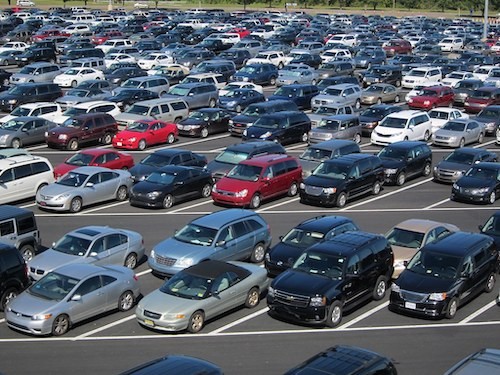Automotive, automation, ITS and telecom industries are showing great interest in the smart parking market as part of a broader smart city and the Internet of Things (IoT) strategy.
You will soon be able to pre-book your parking slot for your Saturday evening show a week in advance. Digital payment options will open smart parking and electric vehicle (EV) charging gates with a single click. You will also be able to charge your EV at malls, residential buildings, schools or large parking complexes.
As per a Research & Markets report, the global smart parking market is going to increase from 4.9 billion dollars in 2018 to 11.6 billion dollars in 2024. Such factors as mobile lifestyle, parking woes, steep charges, ownership curbs by city governments and millennials’ embrace of asset-light living will catalyse its growth. The rise of autonomous cars and EVs, which are likely to be commercially-deployed over the next decade, will give a push to this development.
In the present scenario, increasing parking capacity would be a challenge due to growing scarcity of available urban space, while decreasing the demand will subdue citizens’ mobility experience. Traffic congestion is a result of growing motorisation, which is increasing the demand for dedicated parking spaces, especially in central areas. So, the focus is fast shifting to off-street indoor parking as opposed to outdoor parking, as the latter consumes valuable and usable street space.
Parking 4.0 will bring together the best of Industry 4.0 and Business 4.0, leveraging advanced analytics, experience engineering and newer business models. It will increase efficiency of parking systems with an urban optimisation strategy encompassing both space and mobility dimensions.
The advanced parking management system includes parking availability monitoring, parking reservation, parking price and policy regulation (such as overstay violations), space optimisation, parking guidance and search time reduction on the basis of preferences. It manages such routine services as reporting, integrated payment support and system management in terms of configuration and maintenance.
India’s poor parking infrastructure can be improved by multipurpose parking systems. Parking lots can be turned into hubs for EV charging, waiting bases for taxi drivers from Ola, Uber and the like, and pickup zones for self-drive companies like Rev, Bounce and Zoomcar.
The government is planning to impose challans on robo-taxis and ride-hailing cabs for loging dead miles on roads to curb pollution and traffic problems. This will make parking slots available for resting and charging hubs for cars.
As a range of car subscription and rental models are emerging, it is hard to choose between buying and renting a car. Thanks to millennials embracing the renting economy, car subscriptions are getting global attention from automakers, car dealers and startups.
Automotive, automation, ITS and telecom industries are showing great interest in the smart parking market as part of a broader smart city and the Internet of Things (IoT) strategy. Many automotive OEMs are integrating their portfolio to a mobility ecosystem to provide car-sharing, parking, EV charging and payment solutions.
To achieve an adequate return on investment, the smart parking market is reducing its dependency on dedicated hardware and increasing utilisation of software and analytics. Hence, current business models are opex-based, and rely more on premium software and services available on a monthly or annual basis.
Strategic alliances across these sectors are noteworthy as multi-disciplinary organisations dealing in parking, mobility, automotive equipment and even mobile applications are collaborating to offer integrated solutions and services in the parking industry. All stakeholders in the value chain will benefit from this model. For example, parking operators can improve and ease their operations with bundled services and applications, while automotive OEMs will get an opportunity to build alliances with parking and car-sharing service providers.
These are positive signs that show that with the arrival of new ecosystem players and participants the current market is ready to embrace Parking 4.0. It is anticipated that early positive disruption of this market will begin with the need for EV charging. Autonomous vehicles will fundamentally change the usage of cars and their parking modality with self-parking features and robotic valet parking.










